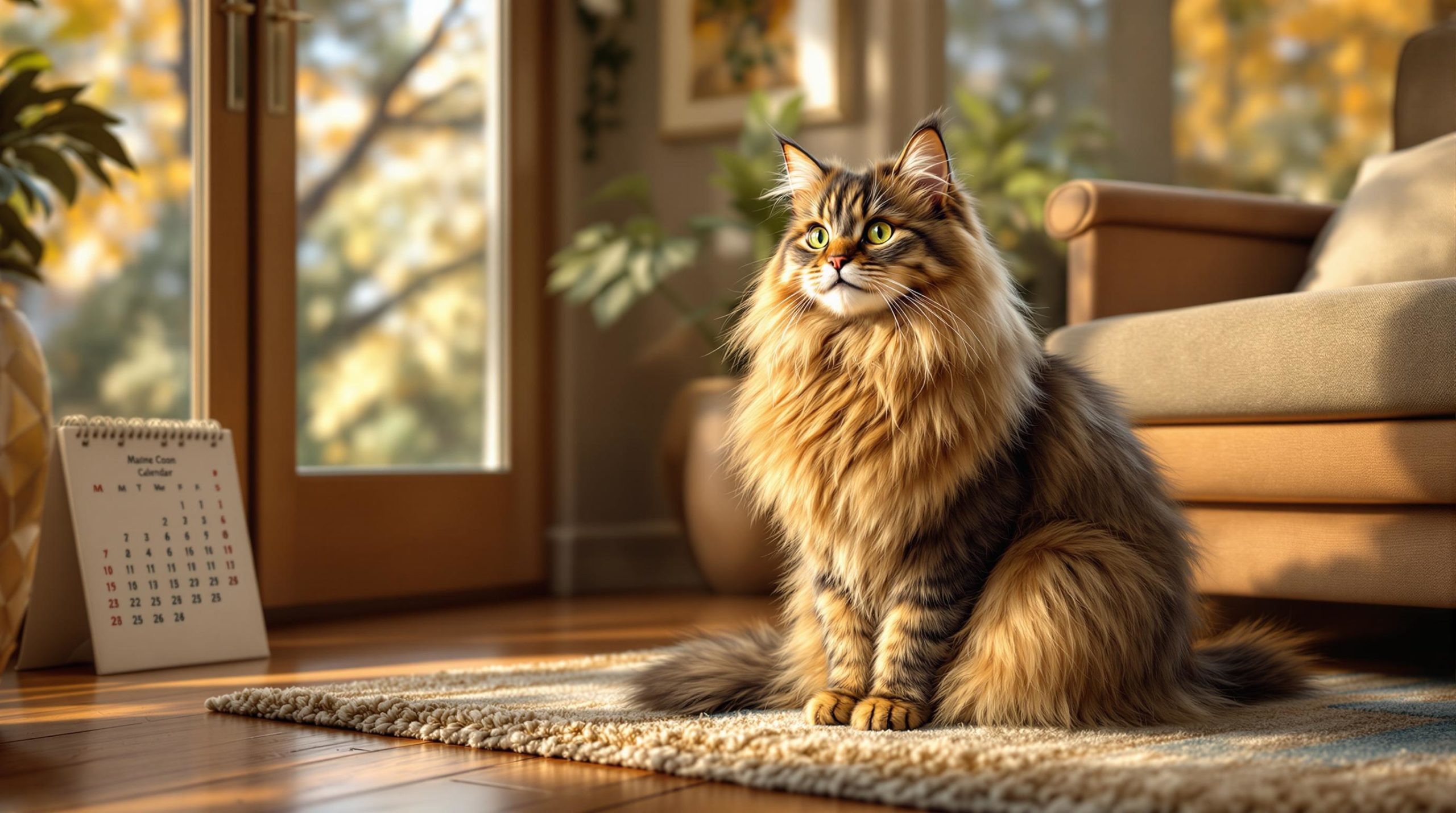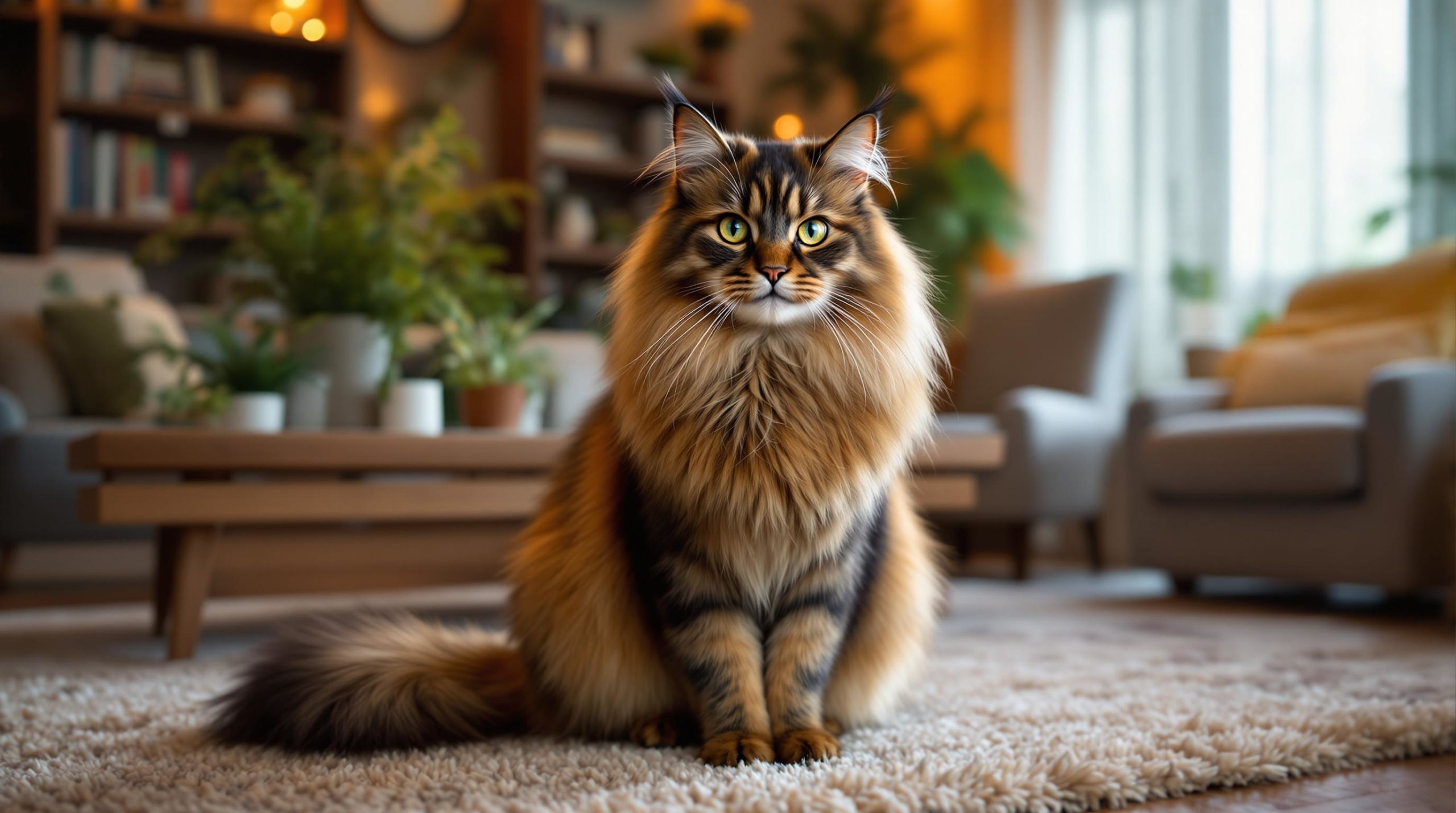Understanding the right age to start breeding your Maine Coon cat

Thinking of breeding Maine Coons is an exciting thought for many cat enthusiasts and breeders, but knowing the right age to start is crucial to ensuring the health and wellbeing of both the queen and her kittens. Maine Coons are majestic cats with a unique history and slow growth rate, which means patience and preparation are fundamental. Understanding the breeding age, the associated responsibilities, and the health considerations can make the difference between a joyful experience and a risky endeavor. This guide unpacks the complexities around breeding age, health checks, costs, and essential tips for both beginners and seasoned breeders focused on this magnificent breed.
Ideal Breeding Age for Maine Coon Cats: Balancing Maturity and Health
While Maine Coon cats reach sexual maturity as early as five or six months, this milestone is far from an indicator that they’re ready for breeding. The consensus among responsible Maine Coon Cat Breeders and cat fancy experts is that breeding should start only after the cats have reached physical and mental maturity.
Female Maine Coons should be at least 18 months old, ideally closer to 24 months, before their first pregnancy. This timing allows the queen to complete most of her growth, preventing stunted development and ensuring she has the strength to carry and care for her kittens.
On the other side, male Maine Coons usually become suitable for breeding between 18 and 24 months of age, once they attain adequate physical maturity and sperm quality. It is essential to emphasize that breeding a male before this window can lead to decreased fertility or poor-quality offspring.
Why Wait Until Full Growth for Breeding?
Maine Coons are one of the slowest maturing breeds, typically reaching their full size and weight between three to five years of age. Rushing breeding can interrupt this growth. Females that become pregnant too early might experience complications such as health risks related to pregnancy and delivery difficulties. Likewise, breeding males prematurely can negatively affect genetics and sperm vitality.
Veterinarians and Feline Genetics Experts often recommend thorough health screenings prior to breeding to establish readiness, including assessments of heart health (especially screening for hypertrophic cardiomyopathy), joint health, and overall vitality. These precautions guard against passing potential genetic conditions to progeny.
Risks of Breeding at the Wrong Age
- For young queens: Physical immaturity can cause incomplete pelvic and uterine development, increasing the risk of dystocia (difficult labor).
- For young males: Lower sperm quality may result in smaller or less viable litters, increasing breeding failures.
- For older cats: Breeding beyond seven years often leads to higher health risks for the queen and her kittens, such as miscarriage or neonatal death.
Responsible breeders stay informed through organizations like The International Cat Association (TICA) and the Cat Fanciers’ Association (CFA) to ensure best practices in timing breeding for optimum outcomes.
| Age Range | Recommended Breeding Status | Notes |
|---|---|---|
| 5-6 months | Sexual maturity, not recommended for breeding | Cats reach heat but physically immature for safe breeding |
| 18-24 months | Ideal breeding start age | Queens mostly grown; males physically mature |
| 3-5 years | Full physical maturity | Most Maine Coons reach full size; breeding is safe and optimal |
| 7 years and older | Breeding discouraged | Higher complications and risks of pregnancy |

Understanding Maine Coon Reproductive Cycles and Heat Periods
Getting familiar with the queen’s reproductive cycle makes a breeder’s life more manageable and increases the likelihood of successful mating. Maine Coon females enter their first heat as early as five or six months old, but this is a natural process separate from breeding readiness.
Heat duration and frequency: Most Maine Coons stay in heat for approximately one week, but the cycle can repeat every one to three weeks if not fertilized. Notably, indoor cats can come into heat year-round, whereas outdoor cats may pause during colder months.
Signs Your Maine Coon Is In Heat
Maine Coons express heat with quite distinctive behavior, aiding breeders in detecting the optimal mating window:
- Excessive Vocalization: Loud yowls and meows meant to attract mates.
- Affectionate Behavior: Increased cuddling and rubbing against people or objects.
- Spraying Scent: Urine marking to signal reproductive status.
- Mating Position: Posture with the rear raised and tail lifted.
Heat Cycle Management in Breeding
Tracking cycles with a journal or app helps breeders plan matings intentionally. However, avoid mating during the first heats, as young queens are usually not physically prepared. Ideally, breeding takes place after the queen has experienced at least two full heat cycles post-18 months. This also gives the breeder opportunities to evaluate her temperament and health over time.
| Heat Cycle Stage | Description | Breeding Advice |
|---|---|---|
| Early Heats (5-12 months) | Onset of reproductive capability but immature | Not recommended to breed; wait for maturity |
| Post 18 months | Physical maturity and at least two estrus cycles | Optimal for first breeding attempt |
| Regular Heat Cycles | Occurs every 1-3 weeks without pregnancy | Plan matings strategically, with rest between litters |
Costs and Responsibilities: The True Investment of Breeding Maine Coons
Breeding Maine Coon cats is often viewed through the lens of profit or prestige, but the reality is that it demands considerable financial and emotional investment. Responsible breeding is a complex process that requires a keen understanding of the Cat Health Network and access to trusted Cat Breeding Resources.
Major Costs Involved in Breeding
From genetic testing to proper nutrition, here’s a breakdown of the common expenses to expect:
- Genetic Screening: Approximately $50 per test per cat to check for conditions like hypertrophic cardiomyopathy and spinal muscular atrophy.
- Stud Fees: Can range from $100 to over $1,000 depending on the quality and reputation of the stud.
- Purchase of Breeding Cats: High-quality queens can cost upwards of $4,000, reflecting their pedigree and health.
- Veterinary Care: Vaccinations, regular checkups, pregnancy monitoring, and emergency care.
- Specialized Nutrition: High-protein, low-carb diets crafted for pregnant or nursing queens.
- Kitten Care and Socialization: Deworming, vaccinations, microchipping (~$50 per kitten), and behavioral enrichment.
- Licensing and Registration Fees: Registering with bodies like the CFA or TICA adds credibility but comes at a cost per kitten.
| Expense Category | Approximate Cost | Notes |
|---|---|---|
| Genetic Screening | $50 per test per cat | Testing for hereditary diseases critical for breeding |
| Stud Fee | $100 – $1,000+ | Depends on stud’s lineage and reputation |
| Breeding Cat Purchase | $4,000+ | Investment in health and pedigree |
| Health Care (vaccines, vet visits) | Varies | Frequent and essential for queen and kittens |
| Kitten Care (microchips, spaying/neutering) | $50-$200 per kitten | Prepares kittens for responsible ownership |
New breeders should be aware that profit margins are generally slim and delayed due to the cost and time requirements imposed by this meticulous care. Nevertheless, the joy of producing healthy, happy kittens that add to the Maine Coon’s legacy often outweighs the financial burden.
Essential Health Checks and Genetic Testing Before Breeding
Health is the cornerstone of successful breeding, particularly for a breed as robust as the Maine Coon. Prior to any breeding decision, rigorous vet checks and health screenings protect both the queen and the resulting litter.
Genetic Conditions to Screen
The Maine Coon breed can be predisposed to specific hereditary conditions, making genetic testing indispensable:
- Hypertrophic Cardiomyopathy (HCM): A thickening of the heart muscle affecting cat health and lifespan.
- Spinal Muscular Atrophy (SMA): A genetic disease causing muscle weakness, which kittens can inherit if both parents carry the gene.
- Polycystic Kidney Disease (PKD): Leads to kidney dysfunction over time.
Working with Feline Genetics Experts and Petri-DNA Labs
Breeders are encouraged to collaborate with organizations like Pawprint Genetics and Cat Health Network to ensure they have access to reliable screening methods and support.
Screening not only secures the health of kittens but also strengthens your reputation among Maine Coon Rescue communities and cat fancier groups.
| Condition | Effect on Breeding | Screening Method |
|---|---|---|
| Hypertrophic Cardiomyopathy (HCM) | May cause heart failure; fatal without diagnosis | Ultrasound (echocardiogram), DNA testing |
| Spinal Muscular Atrophy (SMA) | Causes muscle atrophy; affected kittens do not survive | Genetic testing via blood or cheek swab |
| Polycystic Kidney Disease (PKD) | Kidney cysts leading to renal failure | Ultrasound screening, DNA testing |
Finding Quality Homes and Responsible Breeding Ethics
Bringing Maine Coon kittens into the world carries not only the responsibility for their health but also for their long-term welfare. Ethical breeding means ensuring each kitten finds a responsible, loving home prepared to meet their special needs.
Reliable breeders vet potential owners carefully, often interviewing them about their lifestyle, experience, and commitment level. Advertising through personal websites and social media platforms allows for transparency and wider reach.
Key Criteria for Selecting New Owners
- Experience with cats and particularly large breeds like Maine Coons.
- Ability to provide a safe environment and commit to regular veterinary care.
- Willingness to invest time in proper training and socialization.
- Understanding of Maine Coons’ unique personality and health needs.
Engaging the Maine Coon Community and Associations
Certified breeders often register with prestigious organizations such as the CFA, ACFA, or TICA. Such affiliations enhance breeder credibility and assure buyers of the kitten’s pedigree. These bodies also offer comprehensive resources, educational materials, and health guidelines, making them essential Cat Breeding Resources.
Networking within the Cat Fancy ensures continued support and shared knowledge, while Maine Coon Rescue groups often collaborate to rehome cats responsibly and promote breed health awareness.
| Resource or Organization | Role in Breeding | Benefits for Breeders |
|---|---|---|
| The International Cat Association (TICA) | Registration, shows, education | Recognized pedigree certification; breeder resources |
| Cat Fanciers’ Association (CFA) | Registration, health standards, breeder support | Assures buyers of high-quality, healthy cats |
| American Cat Fanciers Association (ACFA) | Breed standards, registration | Access to judging and breed promotion |
| Maine Coon Rescue | Rehoming and advocacy | Support for ethical breeding and adoption |
Frequently Asked Questions about Maine Coon Breeding Age and Practices
- Q: Can I breed my Maine Coon as soon as she hits her first heat?
A: It’s best to wait until she is physically mature, ideally after 18 months and at least two heat cycles, to ensure safe pregnancy and delivery. - Q: How often can I breed my Maine Coon female?
A: Typically, breeding twice a year is recommended to maintain her health and allow adequate rest between litters. - Q: Do Maine Coons require special care during pregnancy?
A: Yes, they need high-quality nutrition, regular veterinary visits, and a safe, calm environment. - Q: Are there licensing requirements for breeding Maine Coons?
A: Licensing depends on local regulations; breeders with multiple queens often require commercial licenses, so check your regional law. - Q: Can Maine Coons be bred with other cat breeds?
A: Yes, but the kittens won’t be purebred and will not qualify for pedigree registration with major cat associations.